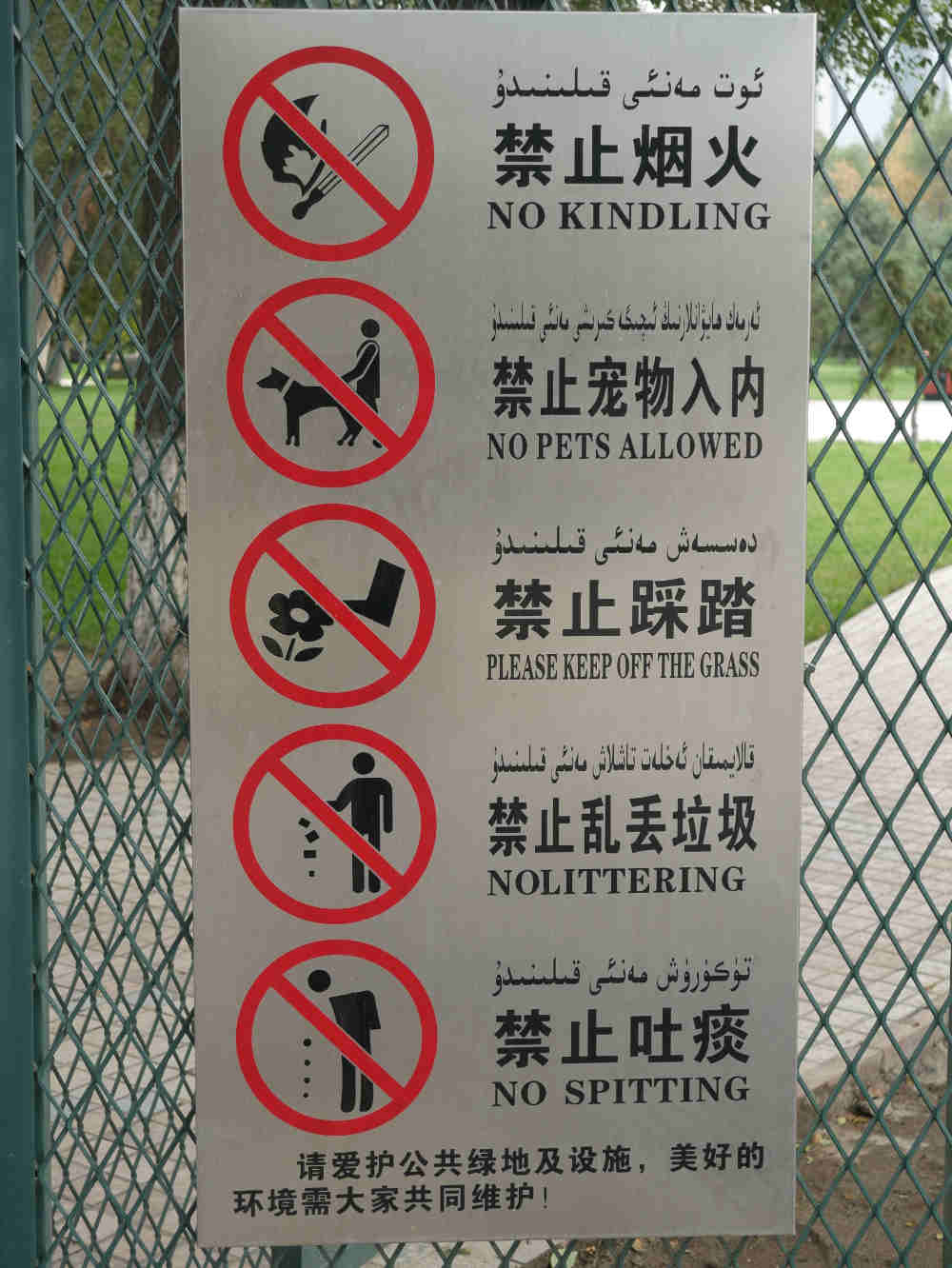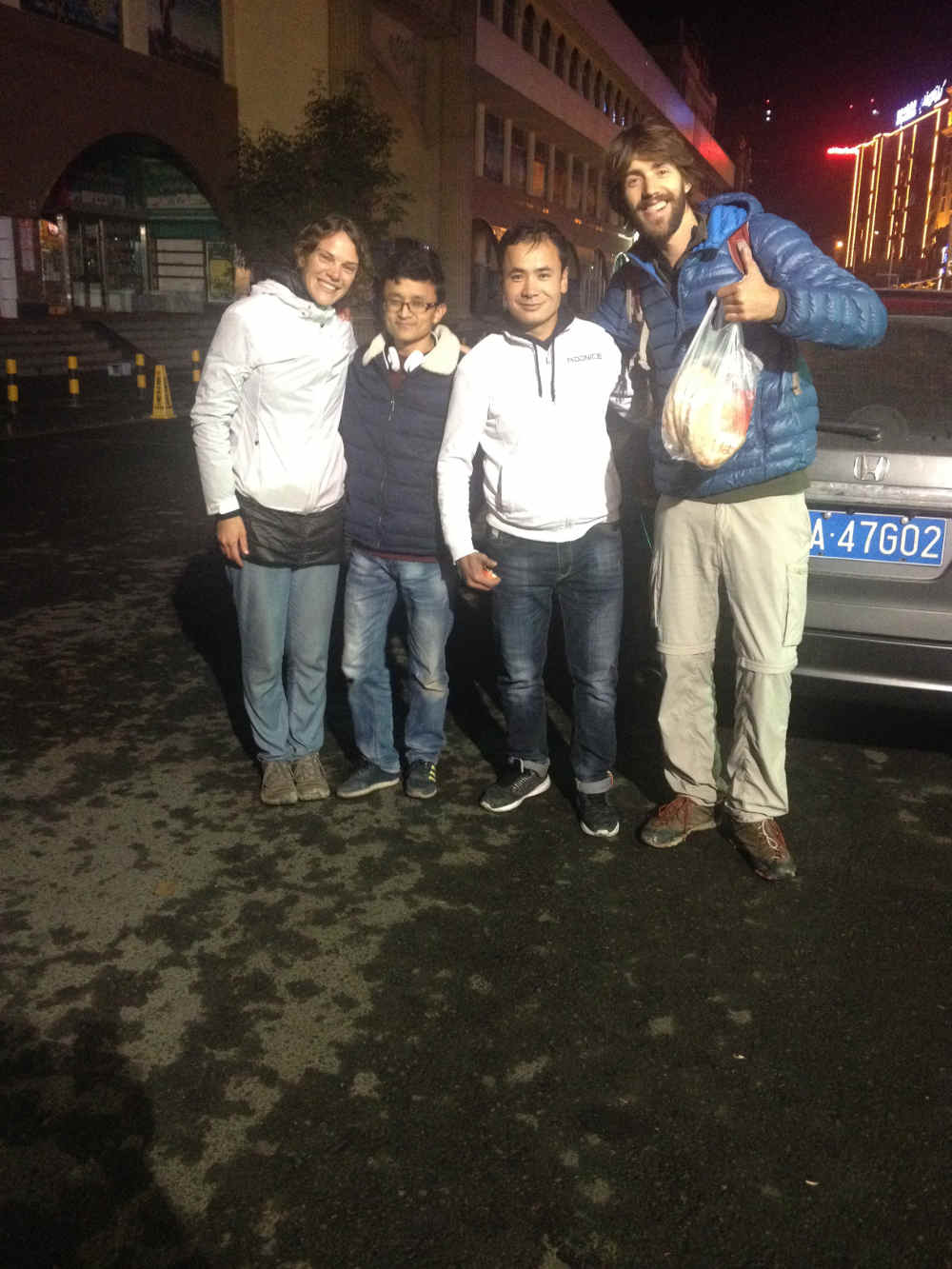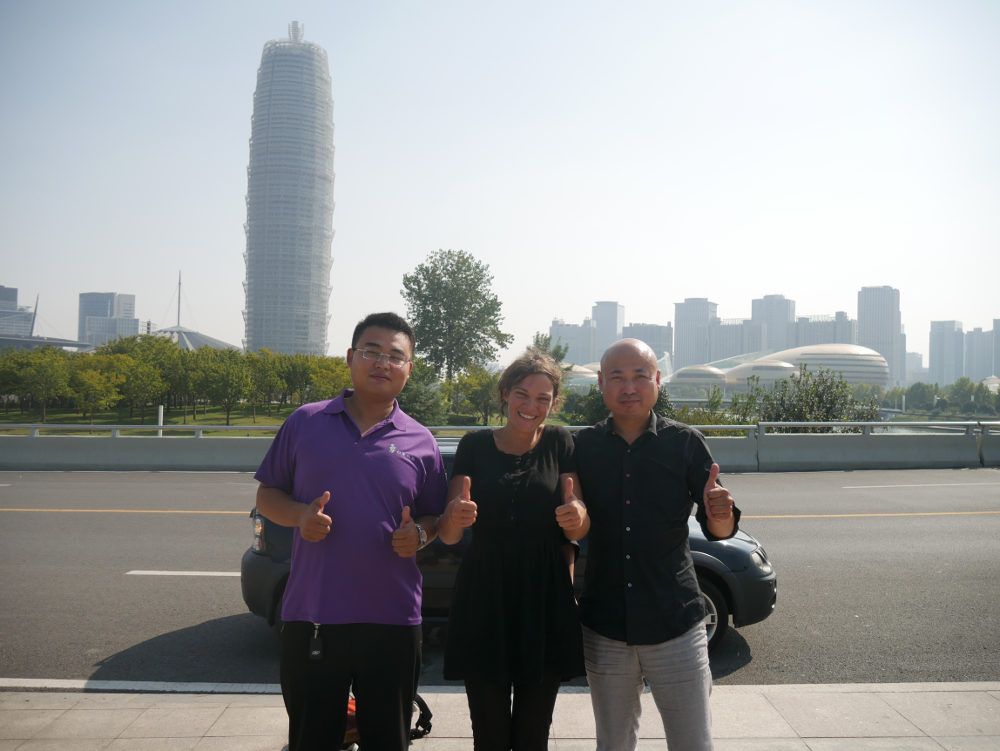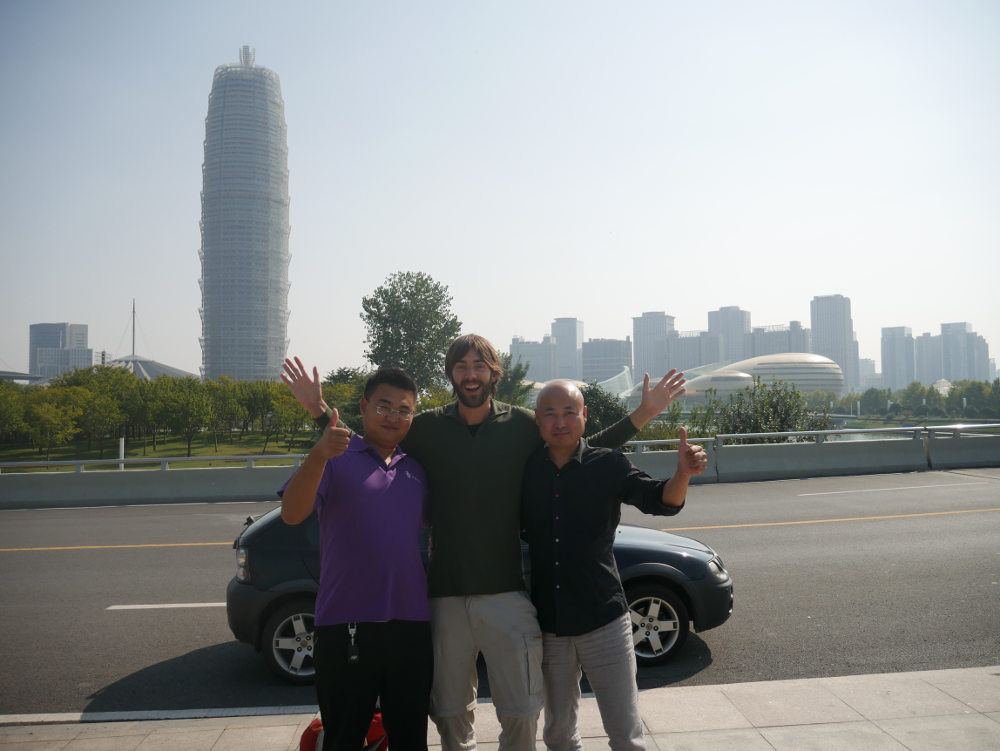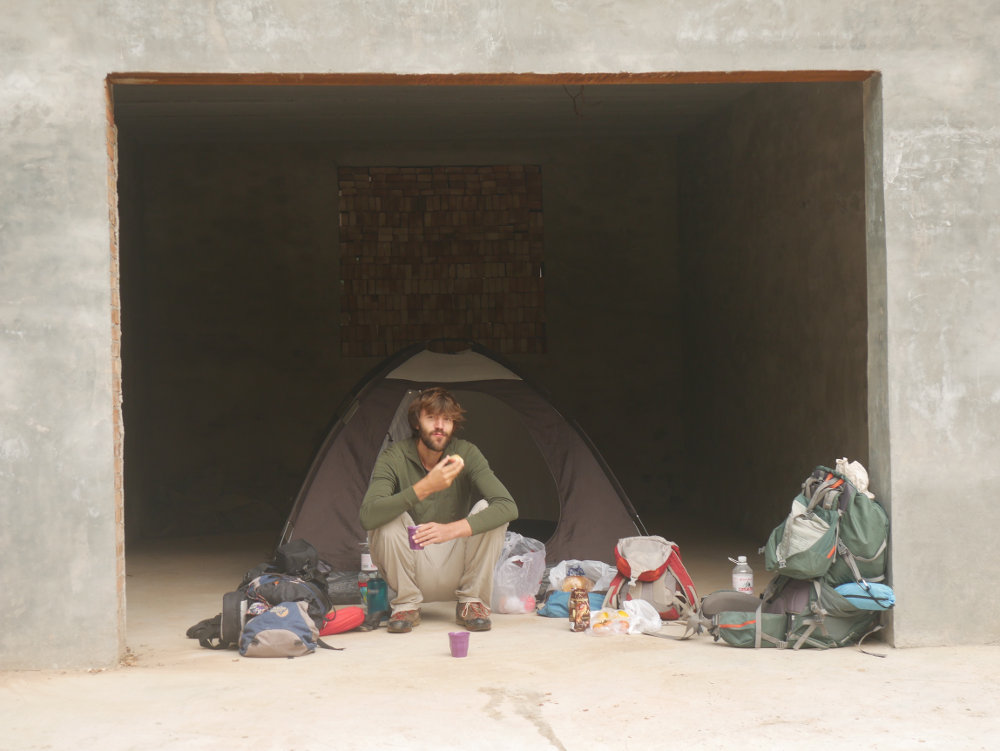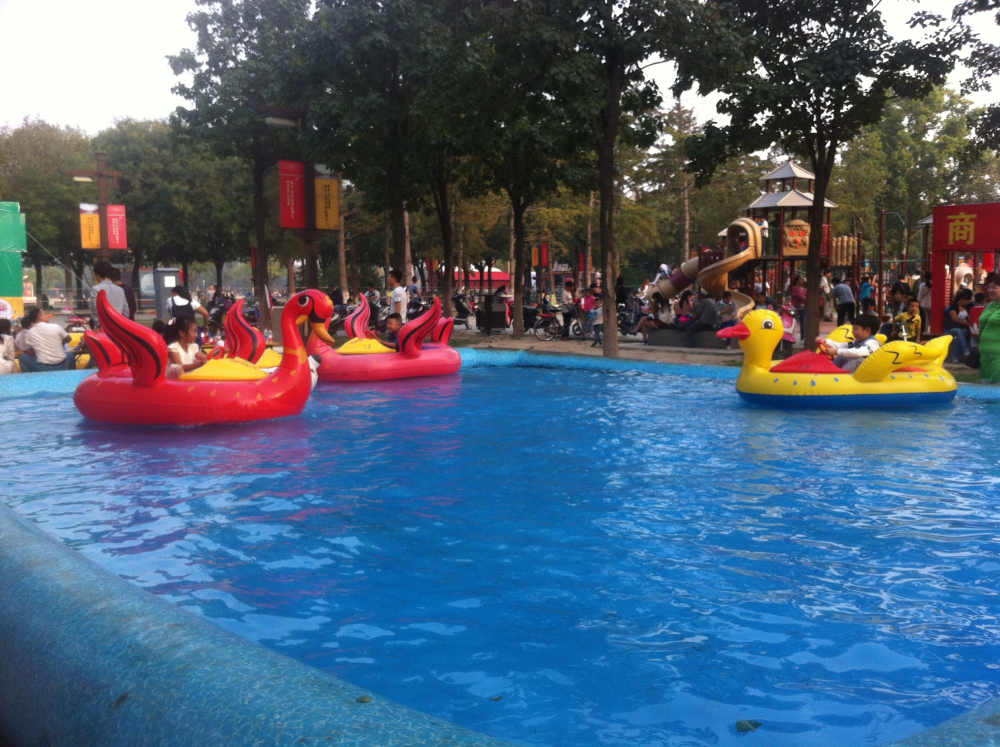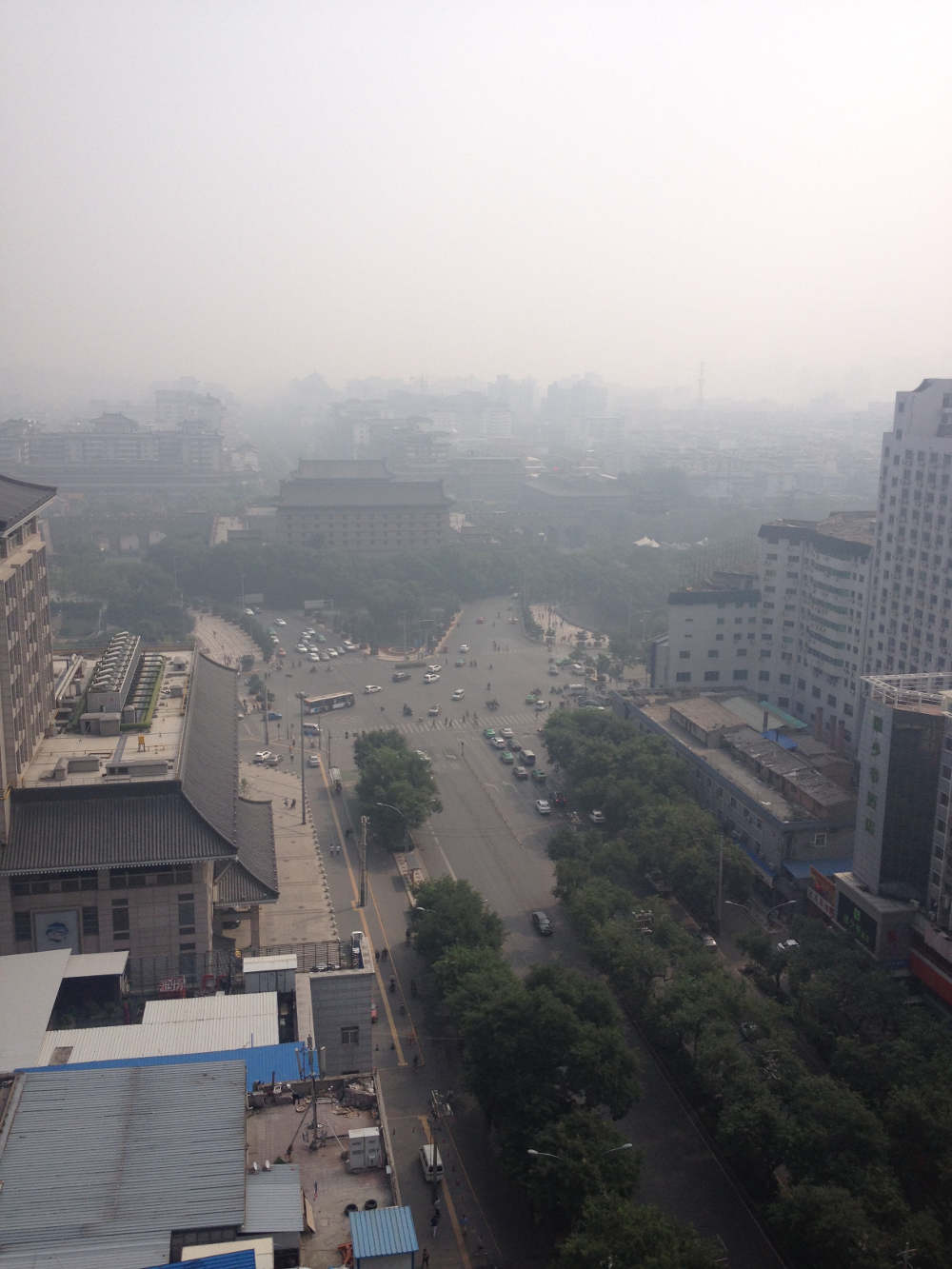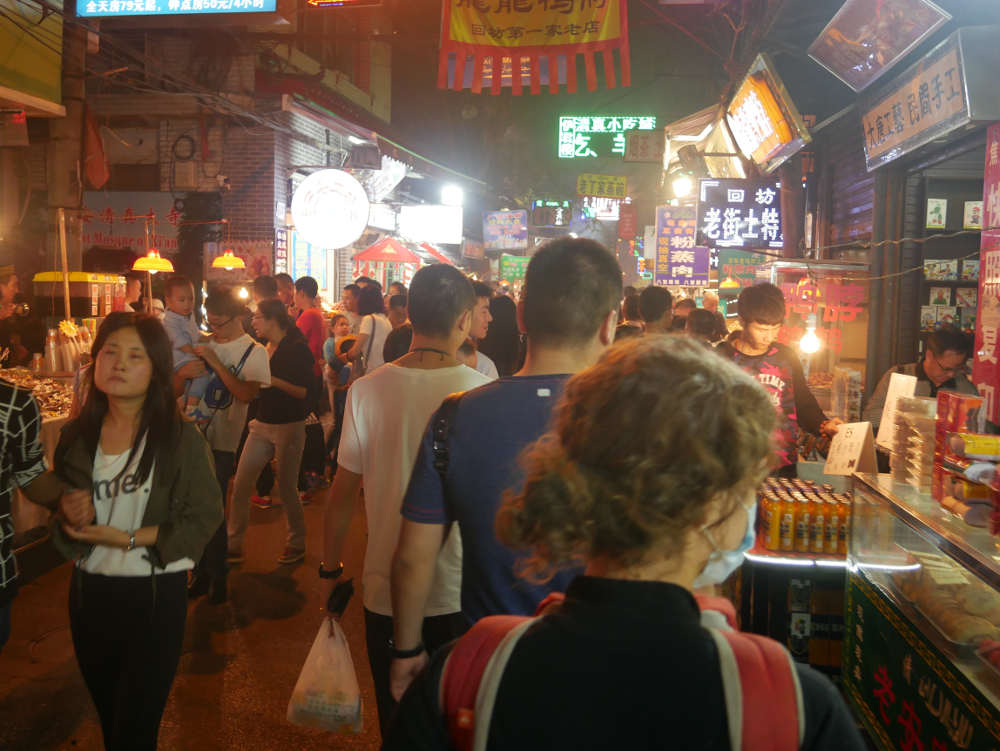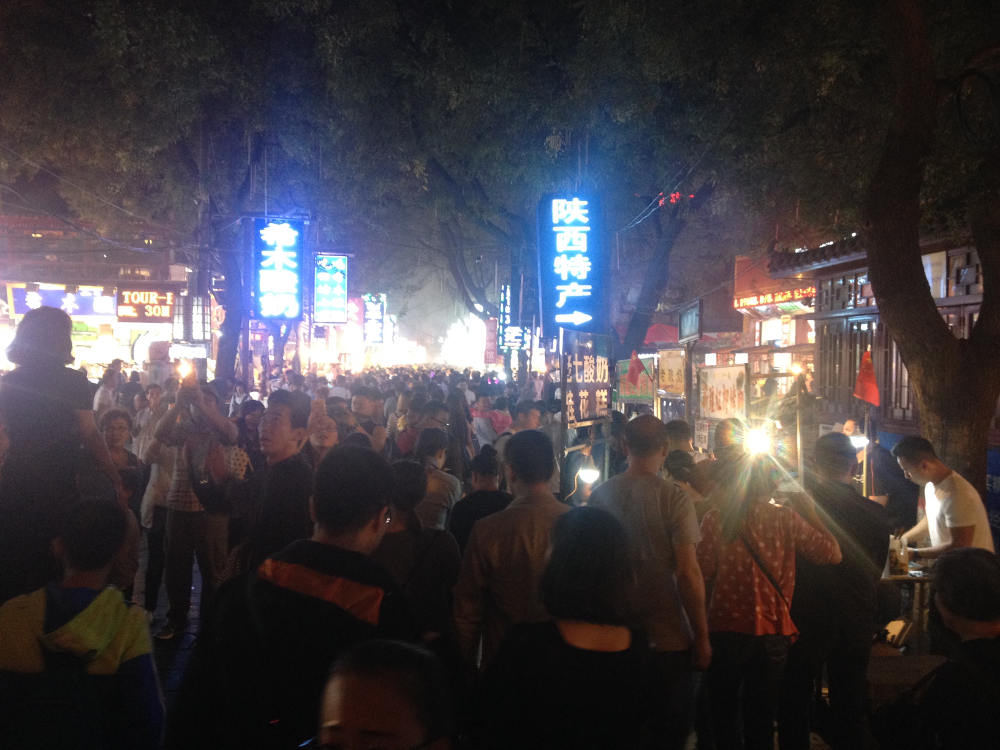China, October 2016
We spent a few days exploring Xi’an, before we continued our journey along the Silk Route towards Urumqi. We had decided to travel the 3000km distance by train and were looking forward to the relaxing train ride. We had booked our tickets in advance, as we would be traveling during X week, where all Chinese have a holiday in which they go home to visit their families. It’s one of the two largest yearly collective movements of people in the world. The other one is by the end of the week, when they go back…
The train station was packed with people and when we saw the first lines doom up, we got a little scared. Luckily, those were just for a security check and didn’t take us very long. Then at the ticket booths, we were amazed at the efficiency. The station had a massive amount of employees working that day, labor is still cheap in China, and we got our tickets within 10-15 minutes. Inside the train we were a little disappointed that it wasn’t as comfy as the Russian trains, but the sweet family that shared the other beds with us in our compartment more than made up for it. They had lots of fruits and nuts with them, which they happily shared with us. The father spoke English fluently, though it was hard to hold much of a conversation due to the continuous interruptions of service announcements and loud music SCHALLEND through the speakers. In a country like China you can’t help but think they do it on purpose, to prevent people from having any meaningful conversations, about unproductive things like basic human rights and all. The Chinese seem to like it though, whenever there would be a sudden lull in noise, it wouldn’t take long for someone to play the same kind of ear screeching tunes through a phone or portable speaker. It sounds like nails on a chalkboard to us, but if you check out our “China Song and Dance video in our film section, you can see for yourself 🙂
After 2 days and nights we arrived at the Urumqi train station at 6am in the morning. A little dazed from our journey and our less than perfect night’s sleep, we stumbled around the dark train station, until a Chinese guy in a bullet proof vest and a machinegun aggressively told us to quickly move towards the exit. So much for the no gun policy, we thought. Coming out of the station, there were a lot more of the same police guys with guns. It felt like stepping into a new country. And in a way we were, according to the Uyghur at least, who are the native inhabitants of the eastern province in Xinjiang and who are denied their independence by the Chinese government. The guys in front of us at the security check for the bus entrance were being hustled and shouted at for having a bottle of Sprite with them, to the point we felt intimidated by it ourselves. But it got worse when we entered the city. We saw police patrolling everywhere and not just in ordinary police cars, they were rolling around in amphibious tank-like vehicles with their machine guns pointing out. Apparently, Urumqi turned into a police state after riots broke out in 2010, where a group of radical Uyghur separatists started slaying Han Chinese in the streets, after which the Han retaliated the following days by doing the same to the Uyghur. Since that day, the city is controlled by a massive amount of police and all Uyghur are now more or less confined to one region inside the city. It’s so extreme, that to this day you are not allowed to buy a single kitchen knife in a store in Urumqi, regardless whether you are Han or Uyghur, or Dutch or German for that matter.
We didn’t have much of a plan, so we decided to simply go around and explore the city. We found our way to a park, walled and heavily guarded by SWAT style police, carrying rifles, where we were asked to push our backpacks through too small of a scanner. When we pointed out that our bags wouldn’t fit, we saw some rather terrifying looks on the security guards’ faces. What to do…? We explained they could simply take a look inside our bags, which seemed to calm them down enough to allow us to enter. Inside the park we saw a wonderful spectacle of mostly elderly Han Chinese doing their early morning slow moving Chi Qong routines, some solo, some in groups. It’s a beautiful sight and it must be wonderful for the mind and the body to come together in groups to start your day in the early morning with a healthy dose of physical exercise.
Our Couchsurfing host Mark then came to meet us. He was an incredible host, freeing up lots of his time to show us around the city, and a wonderful open character, sharing many of his life stories and plans with us. Mark took us to the Uyghur part of Urumqi, where he was noticeably not at ease as a Han Chines amidst the Uyghur. There were many heavily guarded policemen stationed around this part of town and probably many more patrolling around undercover. The city might now be safe, but it sure as hell didn’t feel that way.
Mark was recruited as an assistant for his cousin’s pre-wedding photo shoot the following day. We knew from our experience in Qingdao that these shoots are a full day’s event, so we took the time to meet up with Alim and his friend Frank whom we had gotten in contact with through Couchsurfing as well. They were part of the Uyghur minority, so it was interesting to hear their perspective as well, though they were very hesitant to say anything that might be interpreted as being critical. They would hush one another from time to time, while explaining to us that there were some things they couldn’t openly discuss. They didn’t feel as uneasy in the Han part of town, as Mark did in the Uyghur part of town, but they definitely were far more relaxed in their own area. Alim and Frank were studying to become English teachers and asked Linda if she could teach the students in their school a few things about Germany. We decided to stay in Urumqi an extra day to do a short lecture, which turned out to be one of our most memorable nights in China…
We spent a delicious hotpot brunch with Mark and his friend the following morning, after which we said our goodbyes and turned to some shopping for a warm jacket. Our plan was to hitchhike our way from Urumqi into Pakistan and we figured it would probably get colder the more we would move up in altitude. Time flies when you get lost in impossibly big shopping malls and since Jeroen had messed up “local time” and “Beijing time”, we had to rush to our appointment with Alim and Frank. China only has one time zone (to compare, Russia has eight!), so for practical reasons, Xinjiang has an unofficial local time that is 2 hours behind Beijing time. It seems to be mostly in use amongst the Uyghur though. Either way, we were 2 hours early, which gave us the opportunity to enjoy the evening sun on the steps of a university building, looking out on a square filled with students rolling around on rollerblades.
Alim and Frank came to pick us up early and introduced us to some of their fellow students, with whom we shared an Uyghur-type of lentil soup. When we entered the classroom, it was already packed with students waiting for us. We started by asking the group what they knew about Germany, to which one of the kids yelled out: “Hitler”. Another asked us what we think of Hitler, to which we replied: “what do you think of Hitler”. The answer was rather chilling, as his reply was that he thinks Hitler is great. We asked whether the others agreed and they all enthusiastically cried “yes”. It turned into an interesting discussion, where we mostly asked them why they thought Hitler is so awesome. They seemed to like his ideas of nationalism and viewed him as a strong leader, they even mentioned how they love his speeches. When we asked them about it, we learned that they circulate videos of Hitler’s speeches in social media with Uyghur subtitles. They didn’t mention the obvious elephant in the room: Uyghur being Muslim and Hitler having killed 6 million Jews. The weird thing is, they didn’t feel any shame whatsoever in their love for Hitler. It felt to us as if they were giving Linda a compliment for her genocidal mass murdering former countryman, in their eyes a great German leader.
They seemed mostly interested to learn about the possibilities to study in Germany though, as they had learned it’s possible to study in Germany for free. So we spent most of our time talking about the German educational system, thinking it probably would be a good idea if some of these kids would come over to Germany. It would probably be the best way for them to learn what Hitler was really all about and it would be a good thing if they would bring that message back home.
The evening had a nice end to it when one of the students, Merzhat, jumped up and offered to sing us a Helene Fischer song (a German folk singer, not someone you would expect any young person to be excited about). His singing resonated well with the audience, as you can see in the small clip we uploaded in our film section. The class then morphed into a wild Uyghur music dance arena, after which the self-appointed class representative gave us an elaborate thank you speech, a favor Jeroen replied by expressing our gratitude for their wonderful hospitality. We followed Merzhat home, where we would be able to spend our last night in Urumqi, but not before Merzhat broke out his keyboard and another one of his favorite Helene Fischer songs to have us dancing again in his living room. Tired, from the dancing and the many impressions we had that day, we fell sound asleep. We would be venturing deeper into Uyghur territory the next day, hitchhiking our way southwest towards the Tajik and Pakistan border.
